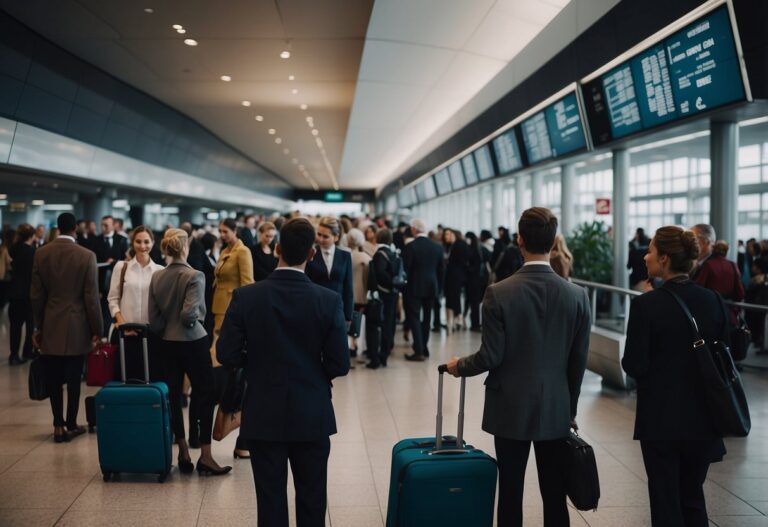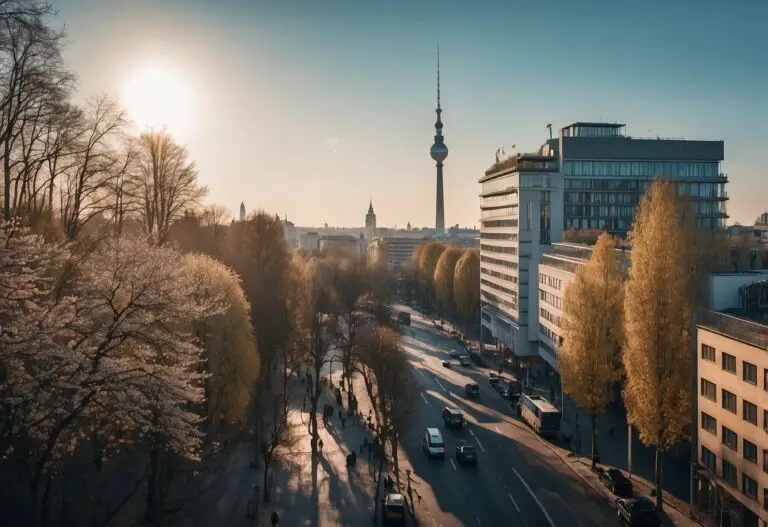Discover the best season to visit Germany, where each time of year offers unique and captivating experiences. Whether you’re enchanted by spring’s blooming landscapes, summer’s vibrant festivals, autumn’s colorful foliage, or winter’s charming markets, our guide will help you find the perfect time for your German adventure. Uncover the magic that awaits in every season and plan your ideal trip.
Overview of Germany’s Seasons

Spring in Germany
Spring in Germany is delightful. From March to May, temperatures gradually rise, ranging from 5°C (41°F) to 20°C (68°F). The landscape bursts into life with cherry blossoms and vibrant flowers.
Outdoor cafes come alive, and it’s the perfect time to visit parks and gardens. Berlin’s festival season starts, and many cities host Easter markets. Remember to pack layers, as some days can still be cool.
Summer in Germany
Summer spans from June to August, with temperatures averaging between 15°C (59°F) and 25°C (77°F). The busiest tourist season offers long daylight hours ideal for sightseeing.
Munich’s beer gardens, Berlin’s open-air festivals, and Hamburg’s harbor activities are some summer highlights. While exploring, keep hydrated, and don’t forget sun protection. Expect some days to be warm and humid.
Autumn in Germany
Autumn, from September to November, brings cooler temperatures ranging from 10°C (50°F) to 15°C (59°F). The season is known for its stunning fall foliage, especially in regions like the Black Forest.
Munich’s Oktoberfest is a must-visit event. Wine festivals and harvest celebrations are also held in many towns. Mornings and evenings can be chilly, so a light jacket is recommended.
Winter in Germany
Winter, from December to February, transforms Germany into a festive wonderland. With temperatures from -2°C (28°F) to 5°C (41°F), it’s cold but magical, especially with snow in areas like Bavaria.
Christmas markets like those in Nuremberg and Dresden offer enchanting holiday experiences. Winter sports enthusiasts can enjoy skiing in the Alps. Dressing in warm layers is essential to stay comfortable amidst the chill.
Cultural Events and Festivals

Oktoberfest
Oktoberfest in Munich is one of the most famous beer festivals in the world. It kicks off in late September and runs until the first weekend in October. Millions of visitors flock to the city to enjoy traditional Bavarian music, cuisine, and beer. Huge beer tents set up by local breweries serve unique Oktoberfest brews, and you can sample everything from bratwurst to pretzels. Traditional Bavarian outfits like lederhosen and dirndls add to the festive atmosphere. It’s a unique opportunity to immerse yourself in Bavarian culture and enjoy some of the best beer around.
Christmas Markets
The Christmas Markets in Germany are magical. They start in late November and run until Christmas Eve. The most famous ones are in cities like Nuremberg, Dresden, and Cologne. Wooden stalls line the streets, selling handmade crafts, ornaments, and delicious seasonal treats like gingerbread cookies and mulled wine. Each market has its unique charm, but the common themes of lights, music, and a festive spirit make them a must-visit. The aroma of roasted chestnuts and the sound of carol singers fill the air, making this an enchanting time to explore the country.
Summer Fests
Summer is packed with festivals celebrating everything from medieval history to electronic music. The Rhine in Flames festival in Koblenz is a spectacular event with fireworks lighting up the night sky over the Rhine River. Wine lovers shouldn’t miss the Weindorf wine festival in Stuttgart, which showcases regional wines and local culinary delights. Meanwhile, events like the Kieler Woche in Kiel feature sailing competitions and international food stalls, making it one of the most significant sailing events in the world. These fests are perfect for enjoying warm weather and vibrant local cultures.
Planning Your Visit

Accommodations and Pricing
It’s important to note that accommodation prices vary significantly with the seasons. During peak times like summer and Christmas, hotels in popular cities like Munich, Berlin, and Hamburg can be pricey. Booking in advance may help secure better rates and availability. Conversely, hotels often offer lower rates during shoulder seasons, such as March to May and October to November, making it an excellent time for budget-conscious travelers. Major events and festivals can also impact pricing and availability, so it’s wise to plan.
Weather Considerations
Germany experiences varied weather conditions throughout the year. During summer, you can expect mild to warm temperatures perfect for exploring cities and enjoying outdoor activities such as hiking in the Bavarian Alps or sightseeing along the German Riviera. Winter brings snow to regions like the Black Forest and Harz Mountains, creating ideal conditions for skiing and other winter sports. Remember that spring and autumn offer milder temperatures but can also bring unpredictable weather, including rain and occasional thunderstorms.
Exploring the Regions
Germany boasts diverse regions, each with its unique appeal. In Bavaria, visitors can enjoy the majestic Alps and charming towns like Munich. The Black Forest offers scenic hiking trails and traditional villages. Coastal areas like the Baltic Sea coastline are perfect for a summer retreat. Major cities like Berlin and Frankfurt are rich in cultural attractions, museums, and vibrant nightlife. Whether skiing in the mountains, enjoying the coast, or exploring metropolitan areas, choosing the right season can enhance your experience.
What is the best month to travel to Germany?
The best month to travel to Germany is May, when the weather is pleasant and spring blossoms are in full bloom. This month offers a beautiful and comfortable travel experience.
Which season is best in Germany?
The best season in Germany is late spring to early summer (May to June), with mild weather, fewer tourists, and many outdoor festivals and activities.
What is the cheapest time to go to Germany?
The cheapest time to go to Germany is winter (January to March), excluding the holiday season when flights and accommodations are generally more affordable.
What is the off season in Germany?
The off-season in Germany is typically from November to March, excluding Christmas. There are fewer tourists during this time and prices for flights and accommodations are lower.
If you liked this blog post about the Best Season to visit Germany, don’t forget to leave us a comment below to tell us about your experience with it.






